People think that disaster will never strike home; however, this can’t be farther from the truth. Therefore, while I do not intend to bombard you with worry and fear regarding onboard fires, I want to give you an easy-to-follow guide on confronting a boat fire situation.
Let us take a look at the top causes of a boat motor fire, preventative tips, how to react in an emergency, and what you do when faced with having to fight an onboard fire.
Table of Contents
Boat Motor Fire Causes
Boat fires are not pretty, and although it is possible to generate from multiple areas on the boat, a fire will most commonly originate at the motor. Keep in mind that fires on outboard engines are more visible and handled much quicker than inboard configurations.
Engine related fires may result from one of the following:
- Electrical System Failure: Short circuits and incorrect wiring are sure ways of inducing a boat motor fire. Perform routine inspections and do not hesitate to address any electrical issues that have surfaced.
- Incorrect Battery Wiring: A glance at your battery will often reveal any rust or corrosion at the terminal end. Fires can result from poor battery connections, loose terminals, and frayed cables.
- Poor Battery Connections: Be sure to hire a marine surveyor to check your boat’s electrical system, including all battery leads and connectors. A battery that is not connected in a series properly could lead to a fire.
- Fuel Leaks: During your pre-departure checklist, carefully inspect your boat engine’s fuel lines, clamps, and fittings. Look for shiny spots and be aware of any strong odors- both of which are a sure sign of a fuel leak.
- Non-approved Battery Chargers: Never use automobile battery chargers. It is critical to invest in a sturdy marine-grade battery charger with various settings that allow you to control its float rate so that your batteries do not overcharge.
- Engine Overheat: If your boat’s engine is not receiving a consistent flow of water through the impeller and water pump, then a fire could erupt due to engine overheating.
- Voltage Regulator Failure: Especially on outboard motors, a faulty or gone-bad voltage regulator could be the cause of a fire. The ensuing heat or sparks generated is more than enough to ignite a drop of fuel.
- Outdated wiring Harnesses: If you have had the pleasure of acquiring an older boat, updating the vessel’s electrical system would be wise, including replacing wiring harnesses.
Boat Motor Fire Prevention Tips
My childhood was full of excellent fire safety tips from Smokey the Bear commercials, Barney the Dinosaur, the Boy Scouts, and chemistry class. I consider myself relatively young but based on the average age (46 years old) of boat buyers in the United States, many of you probably share similar memories.
First and foremost, before any outing, you should have a contingency plan that includes emergency evacuation for the worst scenarios. Walking through this plan several times in your mind before setting sail is one way to prepare yourself for the unexpected.
Fire fighting is an essential skill that all boat owners should have because you never know what could happen when out at sea. You must understand how different fighting a fire onboard a boat is from firefighting on land.
To prevent a fire on board, ensure the following:
- Do not allow carbon, oxygen, and a flame source to meet.
- Maintain clean and adequate ventilation systems.
- Consistently check your temperature gauge and look for irregular behaviors.
- Perform routine maintenance thoroughly and carry out frequent inspections of your boat’s fuel system and motor.
- Display and rehearse evacuation plan with passengers before departure.
- Fit your boat with smoke, carbon monoxide, and vapor detectors where necessary.
- Install and regularly check your boat’s audible alarm system.
- Make sure to completely shut off all systems when not in operation or when you go to sleep.
- If you have a galley, take appropriate actions to ensure a safe area around the stove’s perimeter.
Remember that a boat fire can ignite at any time, so you must be aware of your boat’s behavior at all times. With a background in aviation, I have learned that routine inspections and checklists are a fantastic way to assess the condition and maintenance of various engine components and systems.
Remember to treat every outing with respect and like the Boy Scout motto, Be Prepared.
What Should I Do If My Boat Motor Catches Fire?
An unplanned fire of any type can be highly intimidating and nerve-racking for everyone involved. Of course, easier said than done, but composure is of the essence.
If you are in a position of authority in an emergency situation, you must keep your calm because everyone’s survival depends on the well-collected decisions you make.
According to BoatUS, “the time between ignition and detection is critical.” One of the many reasons it is so important to be aware of your surroundings is early detection.
In an onboard fire situation, you have milliseconds to assess the situation. Your initial evaluation should determine what the fire started, the materials involved, and whether or not the fire is contained or spreading violently.
The ABC’s Of Boat Fire is one helpful tool I picked up along the way concerning boat fires. Its purpose is to classify various types of boat fires by ignition source with recommendations for the best extinguishing agent.
Step-By-Step Guide For Fighting A Boat Fire
I want to reiterate that a fire can happen even if you have met all precautionary details strictly and maintain your boat in excellent condition. Unfortunately, the unexpected can occur at any given moment.
Any vessel with moving parts and an ignition source is a clear candidate for a potential boat fire. Still, quick and calculated action (vs. surprise and chaotic response) can save you and your passengers’ lives and even reduce the total damage inflicted on your boat.
If a fire does break out, please follow this Quick Firefighting Guide:
- If feasible, reposition your boat downwind, so flames blow away from you and your crew.
- Bring your craft safely to a stop as quickly as possible and turn off your engine.
- Put on your life vest and ensure all passengers have a flotation device.
- Use a fire extinguisher to sweep the agent towards the base of the fire in a back and forth motion.
- Deploy your emergency distress signals and use your VHF transmitter to call for help.
- If you cannot safely put out the fire, proceed with your preplanned evacuation plan.
PRO-TIP: Utilize the P-A-S-S acronym to quickly and safely discharge your portable fire extinguisher. Pull the pin, Aim the nozzle, Squeeze the handle, and Sweep the hose from one side to the other.
Onboard Fire Fighting Tools
Federal regulations determine the type and quantity of different firefighting tools depending on the vessel’s size, use, and purpose. Be sure to follow all guidelines closely to ensure your boat can handle a boat fire.
Some of the most common safety equipment items include:
- Life Jackets
- Flotation Devices (such as rings) for Emergency Situations
- Fire Extinguishers
- Visual and Audible Distress Signals (i.e., flare gun and bell)
- Heavy-Duty Flashlight
Recommended Marine First Aid Kit
Being on the water is a great way to kick back, relax, and have fun with friends and family. Unfortunately, although every pre-inspection welcomes a prayer for blessing and safe travels, you or one of your guests may inevitably experience some common or more severe injury.
Every vessel should have a watertight first aid kit that is easily accessible to all members aboard your boat. First aid kits come in all sizes but are not all equipped to handle a diverse range of injuries.
I recommend you acquire the Marine 600 Medical Kit with Waterproof Case. The Adventure Medical Kit team has put a lot of thought into creating this kit ready to handle any situation while out on the water.
In addition to the waterproof case, this specific kit includes a “Comprehensive Guide to Marine Medicine, as well instructions on handling nautical emergencies like running aground, capsizing, and VHF radio calls.”
This kit is suited to treat almost anything imaginable, from fractures and sprains, pain, rashes, burns, various wounds, hypothermia, CPR, and other illnesses.
Whether you select this great option or not, remember that the first aid kit you place onboard must be adequate to handle the number of passengers for the planned amount of time at sea. Typically, it would be best if you figured in a twelve-hour window from the onset of the emergency to when an emergency responder can arrive based on your location.
PRO-TIP: Before sailing, always ensure your first aid kit is serviceable and fully stocked. Make this a critical part of your turn-around inspections and pre-departure checklist.
Conclusion
The best response to an onboard boat fire is preparation. Design an evacuation plan, run through fire drills, and ensure everybody onboard knows where to access the vessel’s firefighting equipment and marine-grade first aid kit.
If you need any help getting your boat prepared to take on a boat fire or need advice on where to purchase various marine-grade safety equipment, please leave your questions and concerns in the comment section below.

Joseph Fabiano is a writer, nature enthusiast, and stay-at-home father of two wild and free boys. He enjoys starting his day with a good run, hot mug of coffee, and a jump in the Ionian Sea, no matter the weather. Currently based in the Apuglia region of southern Italy, he enjoys discovering the world with his best traveling buddies (his little monkey’s and beautiful wife) at every given opportunity. Every trip, long or far, should be made an adventure according to Joseph as he believes inspiration and creation is right in front of you.
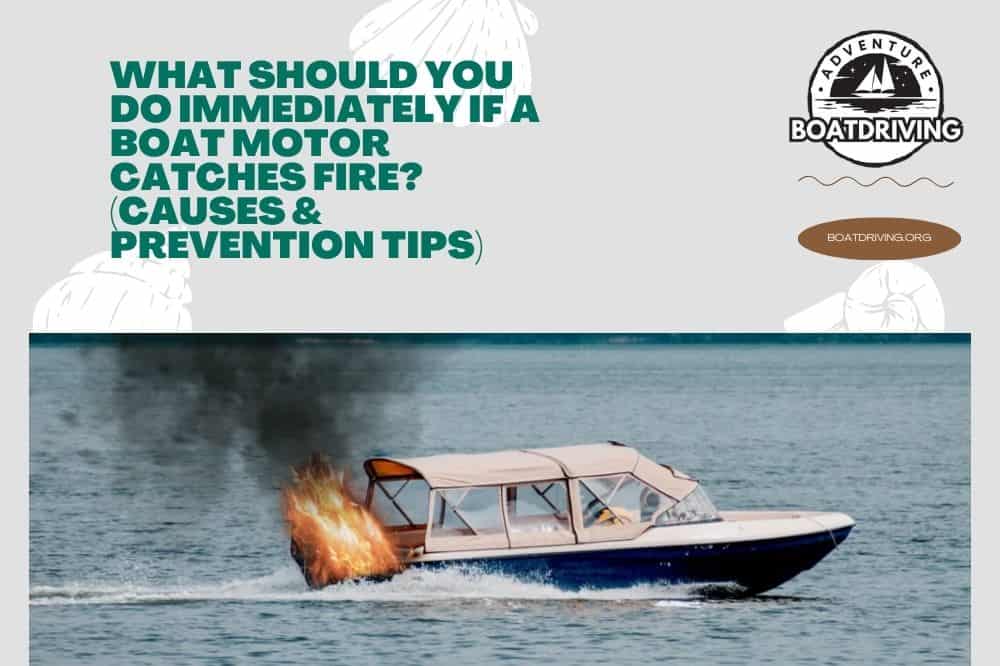
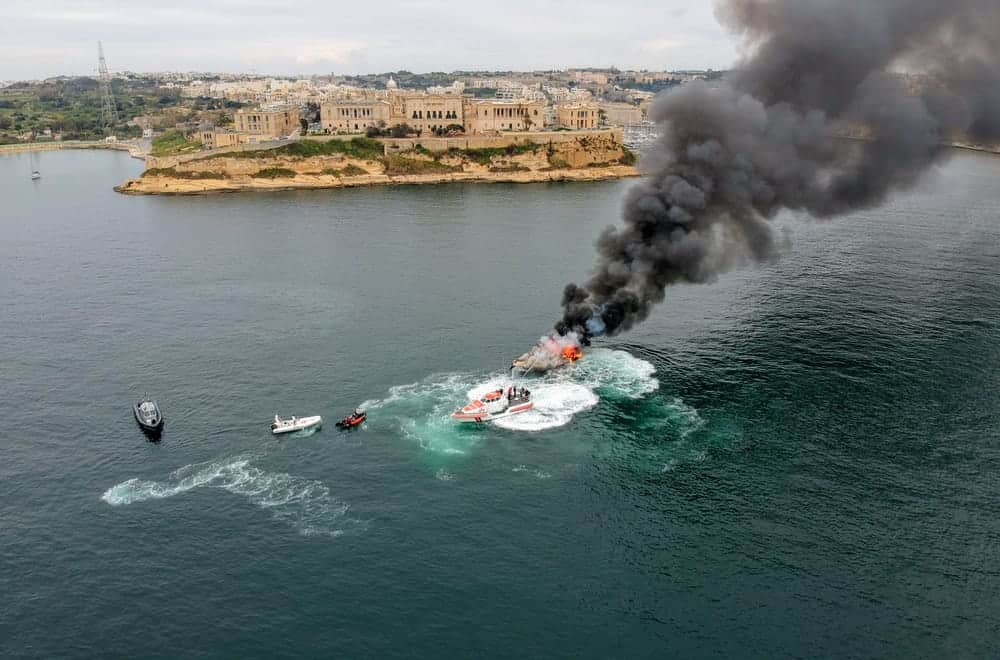
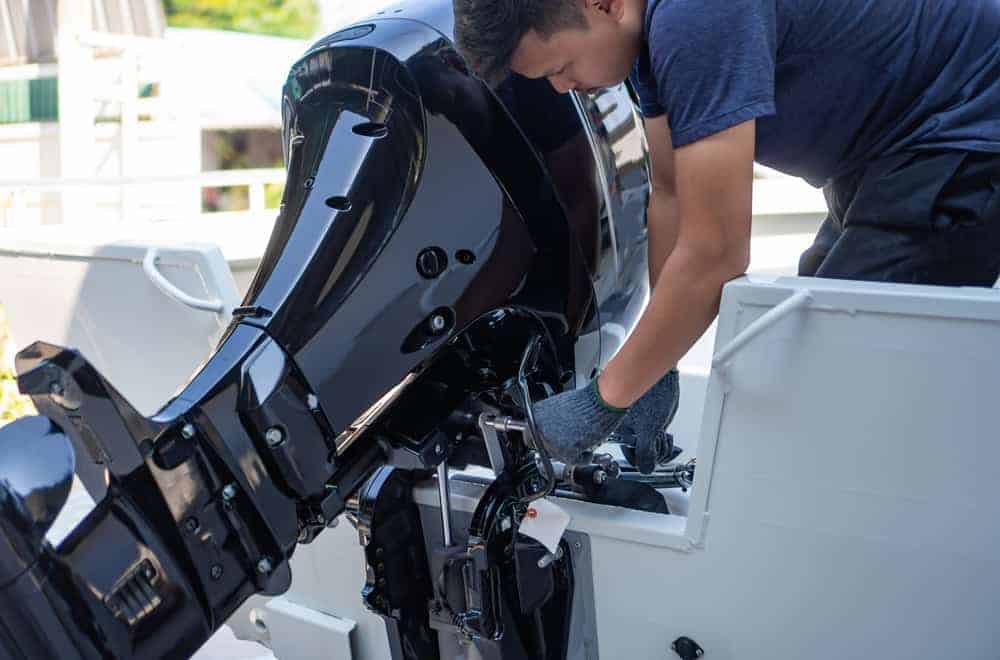
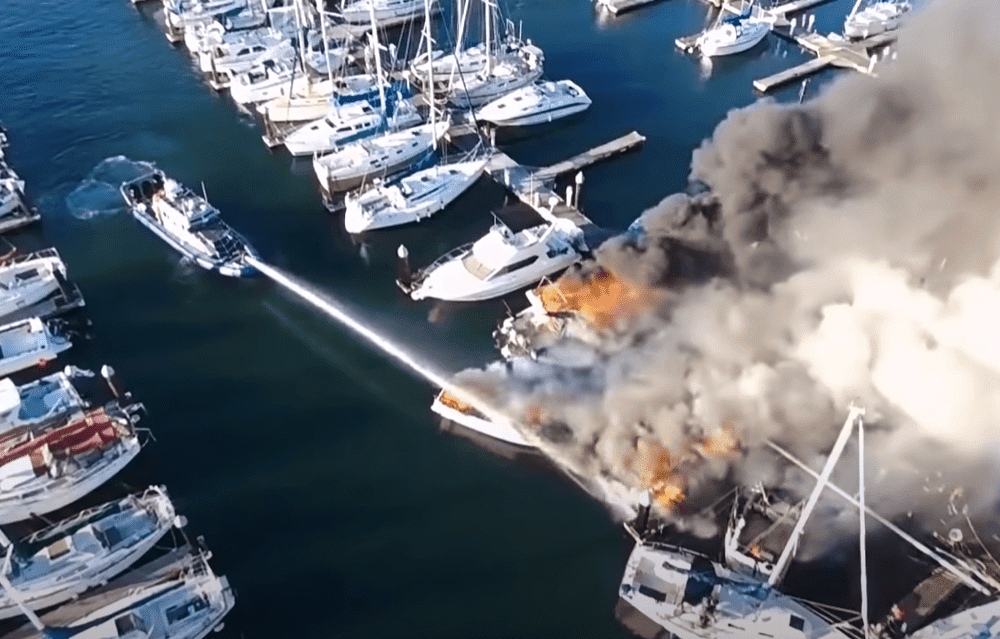
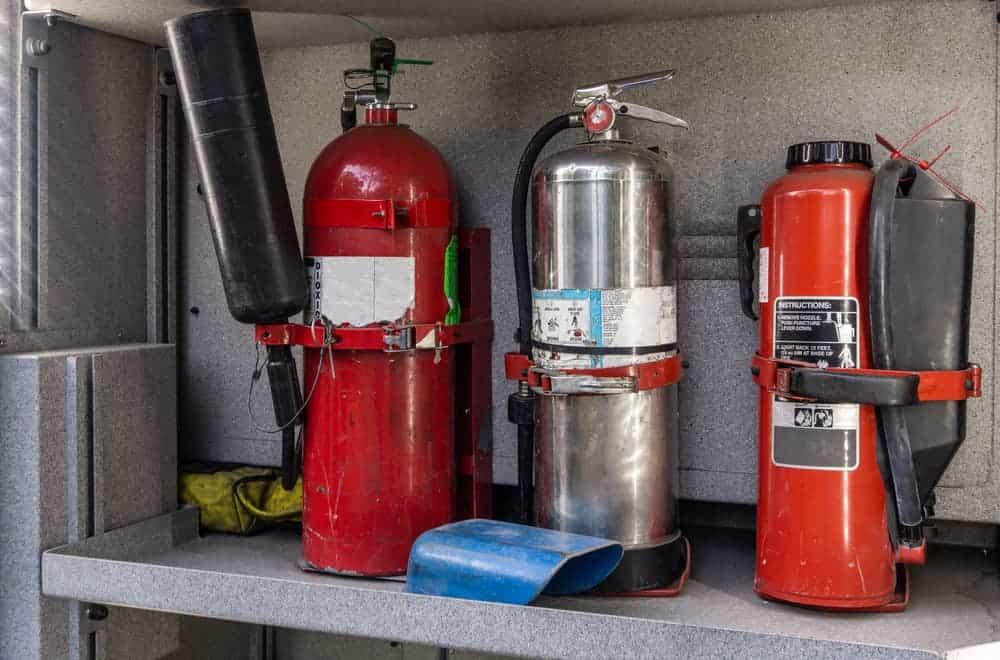

Some boats have built-in fire suppression systems in the engine compartment. Activate this system if available.